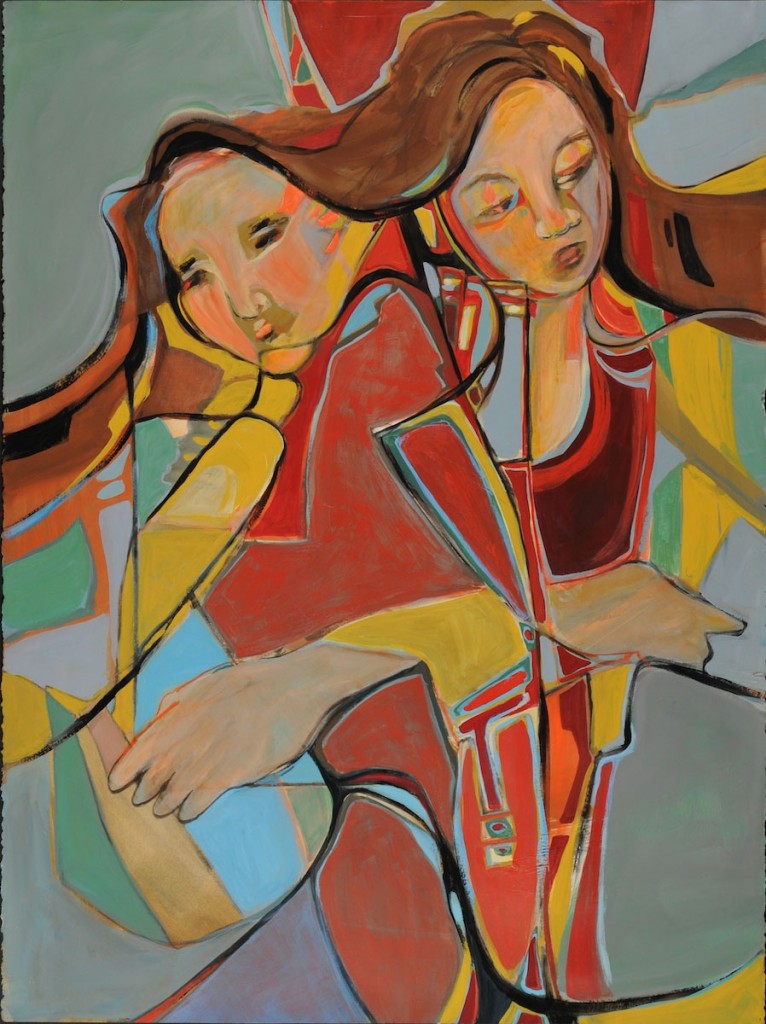April Ford: I enjoyed “If Ever You Decide You Should Go” so much I read it three times in a row without pause; your descriptions are so rich and give the reader a strong connection to the natural world. Sunlight, for example, holds a consistent place in the essay—spots of sun stippling the grass, the sun streaming through a bank of windows, sunlight the color of lemonade. Were you conscious of this motif during your process, or was it one of those “Ah-ha!” writer moments where you looked back and made a discovery?
Elizabeth Dalton: First of all, thank you for including this creative nonfiction piece in your beautiful journal. The various references to sunlight in this piece became evident to me during revision, so this was an “aha” moment for me. As with many writers, my first drafts are a free-for-all. I start with a set of /images and perhaps an ending or a beginning and I aim for or from that place (it’s worth noting that sometimes I never get there). Once the draft is completed, and I’ve finished congratulating myself, I re-evaluate. In this case, once I noticed all the references to sunlight, I more consciously wove them into the various sections of the piece for unity and realism. It’s worth noting, too, that as I mined my memories for this piece, the sunlight of my childhood turned up as a prominent detail.
AF: Was the childhood memory of playing barefoot with Molly a conscious way in to writing about your experience of losing her?
ED: Yes, the theme of traveling light begins with those bare feet. We really did live for those first mornings in late spring when we could begin shedding clothing. First to go were the coats, hats, and gloves in exchange for lighter outerwear. Then the jackets were discarded. We knew our season had truly arrived when we could leave off the shoes as well. Then it was just our skins in contact with the ground. We ran all over that yard, touching every blade of grass we could.
Running barefoot as children was replaced by driving when we became teenagers. As soon as I got my license, we drove—everywhere and nowhere in particular. On the way home from extracurricular activities or from errands, we simply turned down any country road that looked inviting or unfamiliar. Then we drove just to feel the wind on our faces.
Molly never stopped traveling. As an adult, before she married, she sometimes took brief trips without telling any of us. She was a child of the moment, and I’m happy she crammed as many experiences as she could into the few years she had. I admire her for these little journeys and wanted to honor the way that, in the end, she left without giving up what amounted to her essential self.
ED: The title is a lyric from “Seven Bridges Road.” Molly and I often sang together (she sang flawless harmony), so, when writing this essay I had to choose between the song made famous by the Eagles, “Seven Bridges Road” and John Denver’s “Take Me Home, Country Roads,” because we often sang them both—in the car, while doing dishes, wherever we were when the song was playing or when we simply felt like it. Both are about travel. One, Denver’s, is about traveling to a place warm and familiar, and the other, “Seven Bridges Road,” seems to be about traveling from the familiar to a mythical place. In this piece I wanted to show that Molly was traveling from me, from our childhood, from our family into that great whatever that the vast blue Indiana sky and the Atlantic Ocean represented for me when I was a child.

ED: The image is perfect for the piece. The sisters rise from a similar place, sharing the same external trappings, such as the hair, but they gaze in two different directions. The fractured or cubist elements of the piece also complement that fractured timeline of the story, which presents a picture of the distant past in present tense while the more recent—and more painful—events are written in past tense. The image is lovely.
AF: What does “recovery” mean to you?
ED: When my sister died, I felt as though a part of me had been amputated. On that day I knew I would never be whole again, and I was right. The skin has healed over the wound and I can go for a long while now without feeling that deep sadness, but there is a part of me that is gone forever, buried with my sister in her grave. Aside from memorializing my sister, the creative nonfiction pieces from Burying Molly (which is still a work in progress) are a feeble way of reconciling myself to this loss, which is as close to recovery as I can get. I should also add that I don’t see myself or my ongoing mourning for my sister as particularly special. Living with loss is part of the human condition; each of us, if we live long enough, must learn to live without some of our loved ones.
Thank you for the opportunity to comment on this piece. I wish you and the staff of r.kv.r.y the very best for the New Year.


Pingback: If Ever You Decide You Should Go | Rkvry Quarterly Literary Journal
Pingback: Good News: Spring 2013 | Ball State English Department
Pingback: “If Ever You Decide You Should Go” by Elizabeth Dalton | Rkvry Quarterly Literary Journal